Crypto World
Ripple (XRP) Price Predictions for This Week
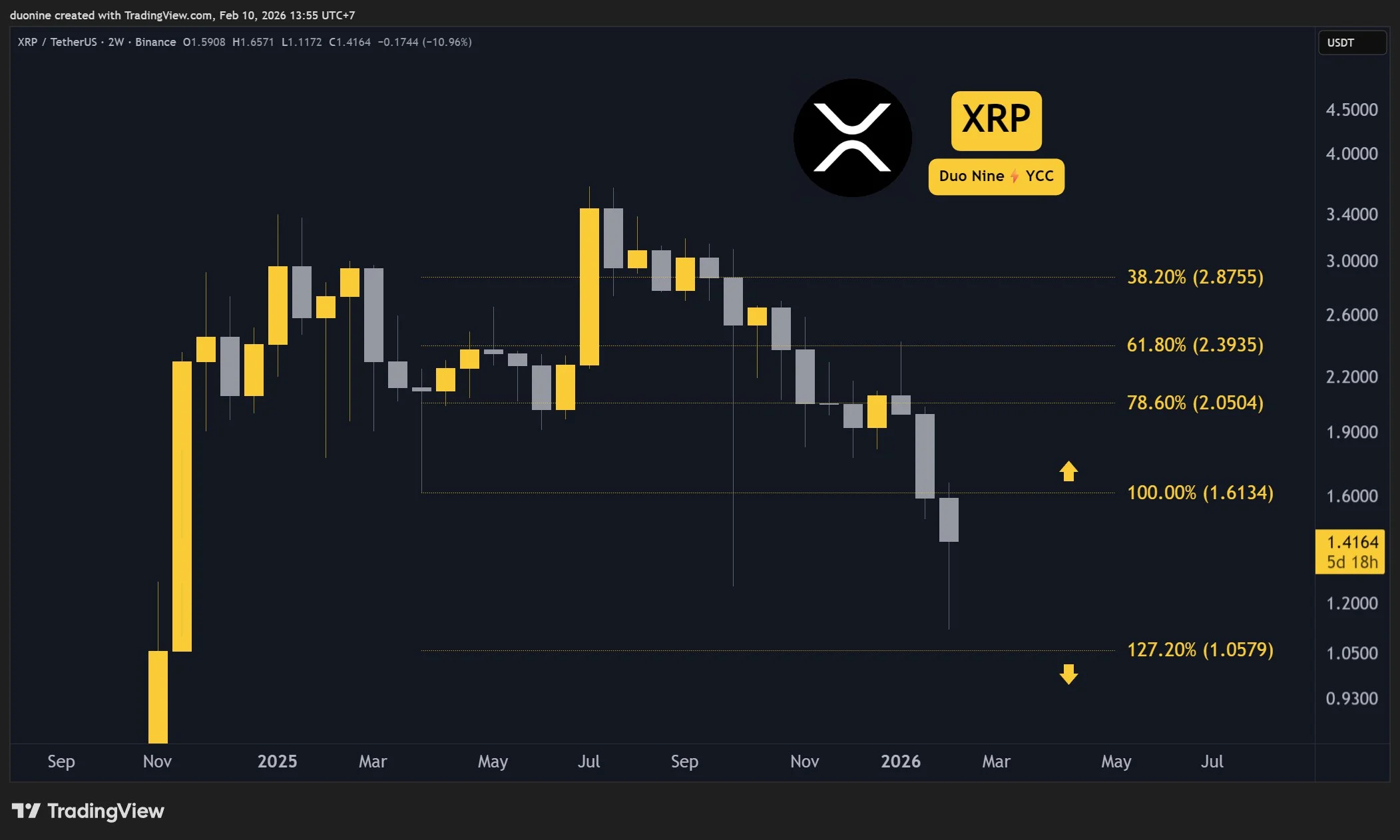
Let’s have a look at some numbers and try to understand where is the XRP price headed this week.
XRP returns above $1.4, but can it hold there?
Ripple (XRP) Price Predictions: Analysis
Key support levels: $1.4, $1
Key resistance levels: $1.6
XRP Price Reclaims $1.4
After the massive drop last Thursday, XRP recovered somewhat and returned above the support at $1.4. If this key level holds, buyers could retest the $1.6 resistance level in the future. Any failure there could see the price resume its downtrend.
Sellers Dominate
A review of the volume shows that sellers have been dominating since late December on the weekly chart. Worst, the selling volume has accelerated in early February, showing no signs of a change. However, increased sales volume could be the first step towards finding a bottom.
Daily RSI Bounces from Oversold Area
During the crash last week, the daily RSI reached 17 points, falling deep into the oversold area. Since then, this indicator snapped back above 30. As long as the daily RSI is under 50, the bias leans bearish.
SECRET PARTNERSHIP BONUS for CryptoPotato readers: Use this link to register and unlock $1,500 in exclusive BingX Exchange rewards (limited time offer).
Disclaimer: Information found on CryptoPotato is those of writers quoted. It does not represent the opinions of CryptoPotato on whether to buy, sell, or hold any investments. You are advised to conduct your own research before making any investment decisions. Use provided information at your own risk. See Disclaimer for more information.
Crypto World
ASTER jumps 9% above $0.60 as traders eye breakout toward $1 target
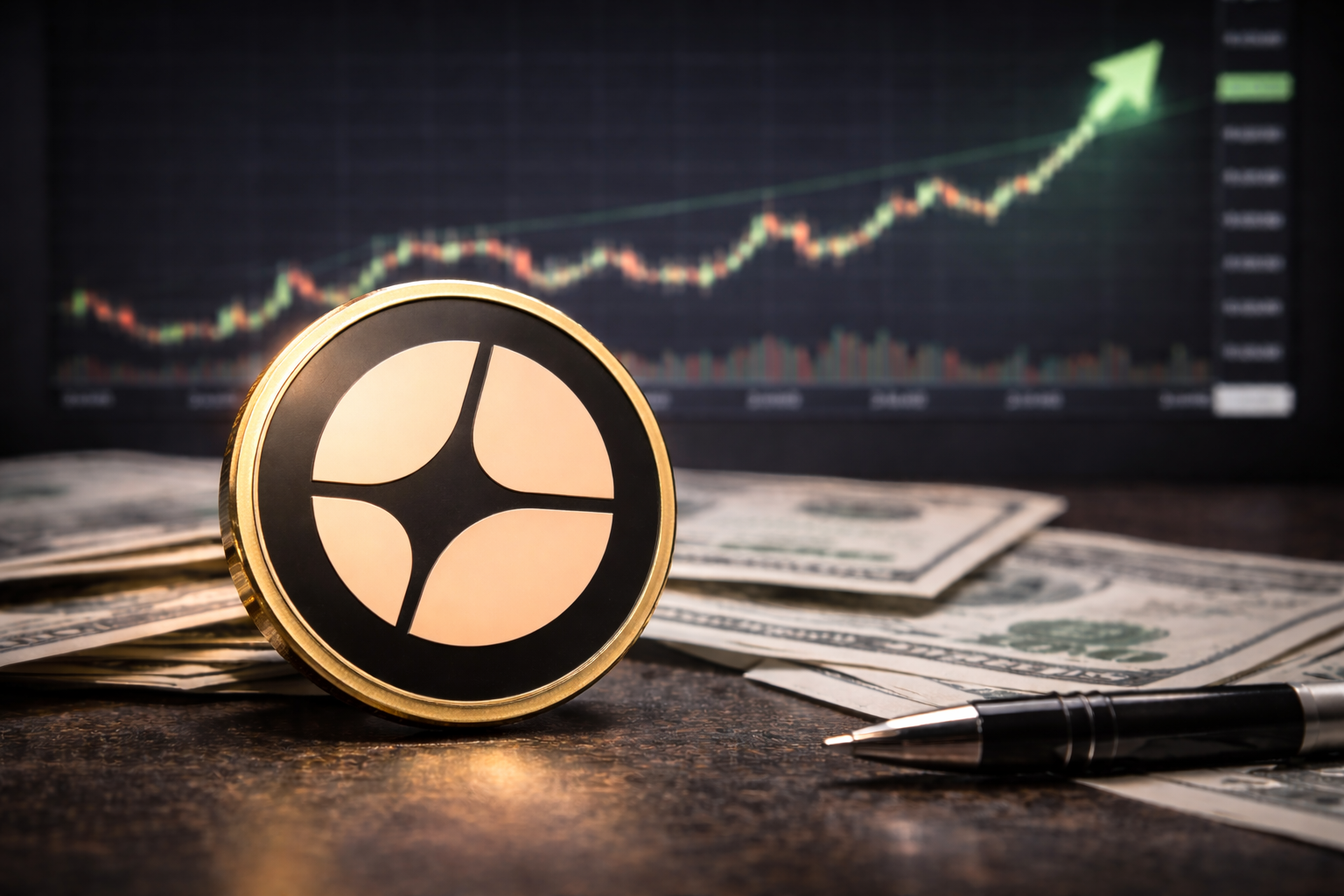

- Aster traded to highs of $0.65 amid a 9% uptick in 24 hours.
- The bounce from lows of $0.43 on February 5, 2026, could extend amid a retest of key levels.
- Risks of a downturn remain as Bitcoin and Ethereum struggle.
ASTER is among the top-gaining altcoins on the day, as its price surges by nearly 9% to extend its upside movement above $0.60.
The token, native to the innovative decentralized exchange platform Aster, is showing this renewed strength amid broader market weakness.
On Tuesday, as Bitcoin and Ethereum held around $68,000 and $2,000, respectively, Aster jumped to intraday highs of $0.65.
A potential upside continuation as traders target more gains is shaping up, although overall sentiment means that profit-taking might still be a factor.
Aster price posts 9% bounce
The crypto market has significantly flipped bearish since the downturn that smashed bulls’ optimistic outlook on October 10, 2025.
In the latest extension of that negative sway, Aster’s price fell to lows of $0.43, with losses mirroring the sharp sell-off to $60k for BTC and $1,740 for ETH.
However, just as BTC bounced to $70k, the altcoin regained some upside momentum and surged to $0.60.
Bulls have held above this level in the past two days, having tested $0.65 on three occasions in the time frame.
ASTER recorded nearly 9% in 24-hour gains, cutting losses over the past week and now trades in the green over this period.
While the bounce aligns with a slight shift in broader sentiment, the dip in trading volume means buyers have not stepped in forcefully.
If the platform’s recent launch of 0% maker fees across all markets draws significant liquidity and user interest, bulls could seize control.
ASTER price forecast
On the one side, a potential pump to $1.30 looms, and on the other, a failure to solidify gains could spell danger.
For bulls, the daily chart reveals a falling wedge breakout, a bullish pattern signaling potential reversal as price compresses and escapes upward resistance.
Key oscillators also remain neutral but lean toward buy signals.
The daily RSI hovers around 53 and is upsloping. However, it is well off overbought conditions.
Meanwhile, the Commodity Channel Index and Average Directional Index both show neutral readings, while the MACD hints at a buy move as the histogram ticks positive with expanding bias.

This setup positions ASTER for a possible short-term pump, with primary supply zones at $0.80 and $0.95.
Breaking to $1 will bring the $1.22 to $1.30 range into view as the next target, which is the top of the projected wedge pattern from November 2025.
With risks of a pullback in play, key levels to watch include $0.54 and $0.46.
Crypto World
Cathie Wood’s ARK Buys $9.67M in Roblox Stock, Dumps PagerDuty
TLDR
- ARK Invest purchased 145,603 Roblox shares worth $9.67 million across three ETFs on February 9, 2026.
- The buy followed Roblox’s strong fourth-quarter results and improved bookings forecast from the gaming company.
- ARK continued selling PagerDuty stock, offloading $1.18 million worth of shares in its fifth consecutive day of reductions.
- The firm added healthcare positions in Recursion Pharmaceuticals and TharImmune while trimming digital ad stocks.
- Total sales included Pinterest and The Trade Desk as ARK shifts focus toward gaming and AI-driven healthcare.
Cathie Wood’s ARK Invest executed major portfolio moves on February 9, 2026. The firm bought 145,603 shares of Roblox worth $9.67 million across three exchange-traded funds.
ARK Innovation ETF, ARK Next Generation Internet ETF, and ARK Fintech Innovation ETF all participated in the purchase. The transaction represents one of ARK’s largest single-stock buys in recent trading sessions.
The Roblox purchase came days after the company released fourth-quarter earnings. The gaming platform posted results that exceeded Wall Street expectations. Management also issued positive guidance for upcoming bookings.
Several analysts have raised their price targets on Roblox stock. They point to increased engagement from users and higher spending patterns. Older demographics are spending more on the platform, which analysts view positively.
Healthcare and AI Investments Grow
ARK expanded its healthcare portfolio with two purchases on February 9. The firm bought 156,272 shares of Recursion Pharmaceuticals for $622,000. The biotech company uses artificial intelligence for drug discovery.
ARK also acquired 54,600 shares of TharImmune valued at $226,000. Both purchases align with Wood’s strategy of backing companies using technology to develop new medicines.
Additional buys included 2,114 shares of Kodiak AI worth $19,343. ARK added 444 shares of Tempus AI for $24,380. The firm also purchased 57,164 shares of Bullish totaling $1.57 million.
ARK Reduces Software and Ad Tech Exposure
ARK sold 147,125 shares of PagerDuty for approximately $1.18 million. The sale marks the fifth straight trading day ARK has reduced this position. Shares were sold through ARK Innovation ETF and ARK Next Generation Internet ETF.
The repeated selling indicates declining conviction in PagerDuty stock. The company provides incident management software for IT departments. ARK has now trimmed its stake substantially over the past week.
Pinterest was another stock ARK reduced. The firm sold 46,800 shares worth roughly $917,000. ARK also cut its Trade Desk position by 24,157 shares for about $653,000.
Both Pinterest and The Trade Desk generate revenue from digital advertising. The sales suggest ARK is moving capital away from ad-dependent business models. The firm appears to be favoring gaming and healthcare technology instead.
ARK sold 497 shares of Qualcomm for $68,257. This represents a minor position adjustment in the semiconductor sector.
Total sales on February 9 reached approximately $2.82 million. Combined with purchases of roughly $12.15 million, ARK increased its net equity exposure. The buying pattern shows Wood is deploying more capital into preferred holdings.
The portfolio changes reflect ARK’s focus on companies with strong growth potential. Roblox leads the buys while PagerDuty continues facing selling pressure. Healthcare and AI stocks received additional investment as digital advertising names were reduced.
Crypto World
Harvard endowment tilts harder into Bitcoin ETFs than Google stock
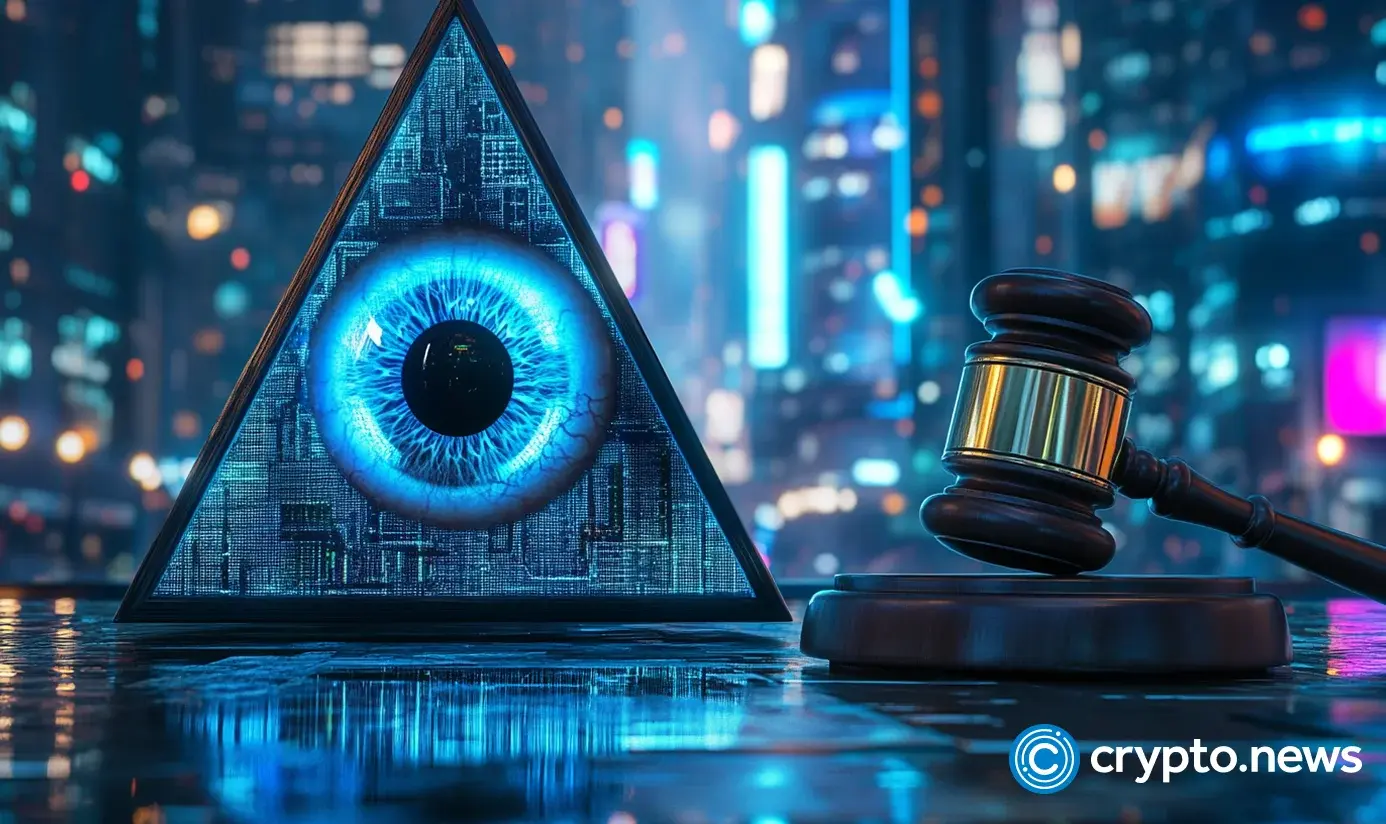
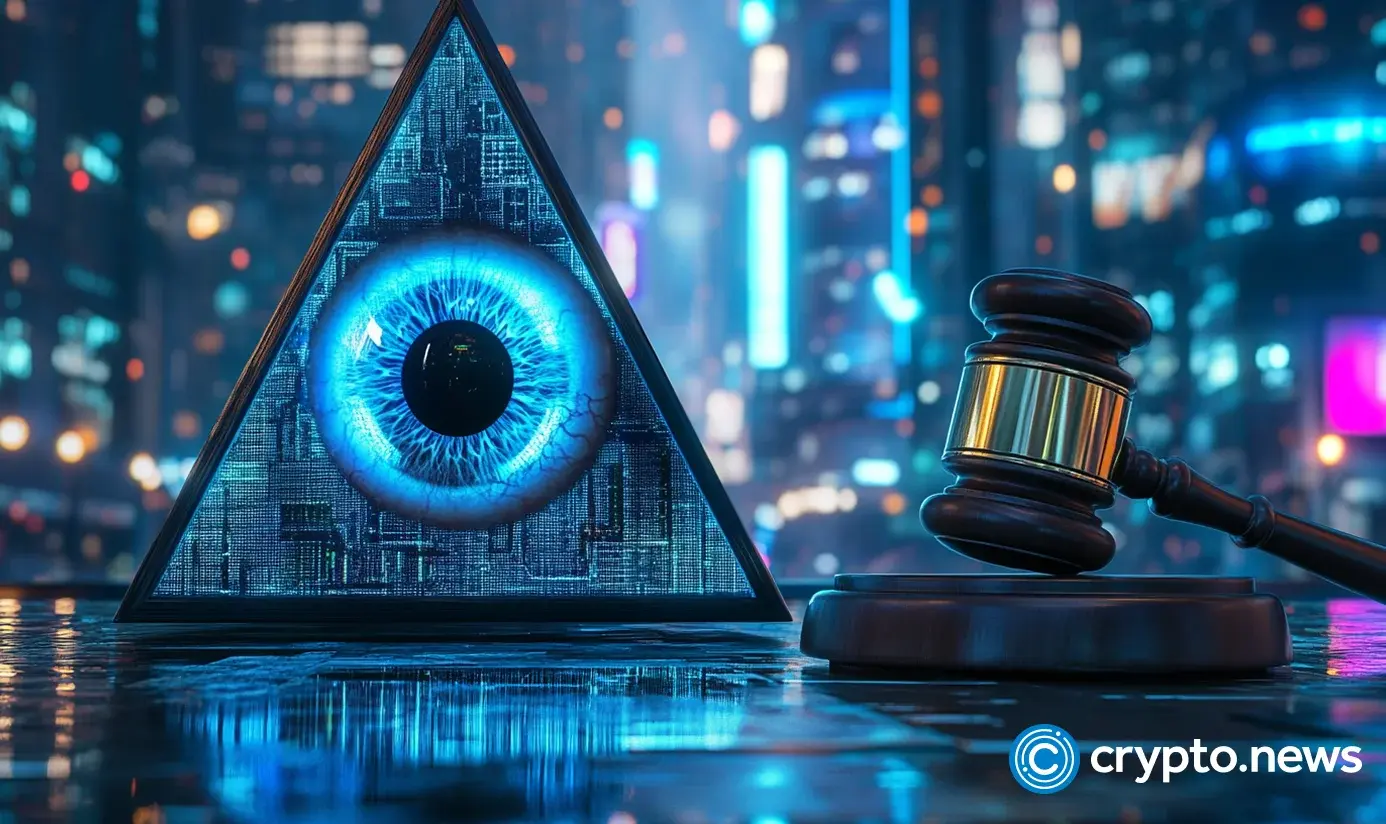
Harvard’s endowment has quietly made Bitcoin ETFs a top public holding, surpassing Google and joining other elite universities in rotating long‑term capital into digital assets.
Summary
- Filings show Harvard built and then tripled its BlackRock iShares Bitcoin Trust stake, lifting IBIT above Alphabet and other big‑tech names in its public portfolio.
- Brown, Emory, and other U.S. universities have also disclosed multi‑million‑dollar Bitcoin ETF and trust positions, signaling a broader endowment shift into crypto.
- The rotation comes as Bitcoin trades near $68,400, with Ethereum and Solana also rallying while digital assets again track global risk appetite.
Harvard University’s endowment is now leaning harder into Bitcoin (BTC) than into Silicon Valley’s most iconic search giant—and markets are taking note
Harvard’s Quiet Portfolio Pivot
“FUN FACT: Harvard University holds more in Bitcoin ETFs than it holds shares in Google,” Bitcoin Magazine posted on X on February 10, distilling a shift years in the making.
Regulatory filings show Harvard built a roughly $116.7 million position in BlackRock’s iShares Bitcoin Trust in 2025, lifting its Bitcoin exposure above stakes in Alphabet and other big‑tech mainstays.
Subsequent disclosures indicate Harvard increased that wager, with some estimates putting its Bitcoin ETF holdings in the hundreds of millions and ranking the position among its single largest listed assets.
Commentary from the digital‑asset industry has been blunt. “Most people think Bitcoin is the gamble, but Harvard’s math clearly suggests that not owning enough of it is the bigger risk to their long‑term portfolio,” wrote SIG Labs.
Another bitcoiner framed it more simply: “Bitcoin is moving from theory to balance sheets.”
Endowments Move Into Crypto
Harvard is not alone. Brown and Emory universities have both disclosed sizable Bitcoin ETF and trust positions, running into the tens of millions of dollars in IBIT and Grayscale’s Bitcoin Mini Trust. One crypto media noted that “several prominent U.S. university endowments have disclosed investments in cryptocurrency – including Emory, Brown, and Dartmouth Universities.”
Bitcoin, Google, and Macro Risk
Harvard’s rotation comes as digital assets again trade as a pure expression of global risk appetite. Bitcoin (BTC) is hovering around $68,400, with intraday swings pulling it below $70,000 twice in the past 24 hours as traders digest a near‑50% drawdown from its 2025 peak near $126,000.
Ethereum (ETH) changes hands near $4,760, up roughly 2.5% over the last day, while Solana (SOL) trades close to $208 after a gain of just over 5%, on volumes above $12 billion.
“This is Harvard flipping tech for BTC ETFs,” one trader wrote, calling it “wild” and a sign that “institutional adoption is officially peaking right now.”
If that proves true, Bitcoin beating Google inside the world’s richest university endowment may be remembered as more than just a memeable “fun fact.”
Crypto World
MrBeast Acquires Step Banking App After $200M BitMine Investment

TLDR
- YouTuber MrBeast’s company Beast Industries purchased Step, a banking app with 7 million teen and young adult users
- Deal follows $200 million investment from Ethereum treasury firm BitMine Immersion Technologies in January 2025
- Step provides FDIC-insured banking through Evolve Bank & Trust with features for credit building and money management
- MrBeast filed trademark for “MrBeast Financial” in October 2024 mentioning cryptocurrency exchange services
- Acquisition price not disclosed; Step previously raised $500 million from celebrity investors including Steph Curry
Jimmy Donaldson, known online as MrBeast, is expanding his business empire into financial services. His company Beast Industries completed an acquisition of Step, a mobile banking platform targeting teenagers and young adults.
Donaldson shared the news Monday on social media. He told his audience the purchase aims to give young people financial education he lacked growing up. “Nobody taught me about investing, building credit, or managing money when I was growing up,” the YouTuber explained.
Beast Industries did not reveal how much it paid for Step. The company declined to comment on financial terms of the transaction.
Step currently serves between 6.5 and 7 million users. The app launched in 2018 to help Gen Z manage finances, build credit scores, and access banking tools.
Banking Features and FDIC Insurance
Step partners with Evolve Bank & Trust to offer Federal Deposit Insurance Corporation-insured accounts. Users receive a Step Visa Card and can open accounts for spending, saving, and investing.
The platform charges no monthly fees. Step’s founders CJ MacDonald and Alexey Kalinichenko designed the app to improve financial literacy among younger users.
Beast Industries CEO Jeff Housenbold said the acquisition allows the company to provide practical financial solutions. He stated financial health is fundamental to overall wellbeing.
$200 Million Crypto Investment Preceded Deal
BitMine Immersion Technologies invested $200 million in Beast Industries during January 2025. The firm holds the largest corporate position in Ethereum cryptocurrency.
BitMine chair Tom Lee called the investment a long-term bet on the creator economy. He praised MrBeast’s reach among Gen Z, Gen Alpha, and Millennial demographics.
The investment came after Beast Industries filed a trademark application for “MrBeast Financial” in October 2024. That filing referenced cryptocurrency exchange services, payment processing, and decentralized exchanges.
Whether the trademark connects to the Step acquisition remains unknown. Beast Industries has not confirmed plans to add cryptocurrency features to Step’s platform.
Step’s Investor Base and Growth
Step raised roughly $500 million from various investors since launching. Celebrity backers include NBA player Steph Curry, singers Justin Timberlake and Charli D’Amelio, and actor Will Smith.
Payment processor Stripe invested in Step alongside venture firms Coatue, Collaborative Fund, Crosslink Capital, and General Catalyst. The company scaled its user base to 7 million over eight years.
MrBeast runs the largest YouTube channel globally with 466 million subscribers. His channels generate about 5 billion monthly views.
Beast Industries operates multiple businesses beyond YouTube. These include Feastables snack brand, Beast Philanthropy nonprofit, and Beast Games reality show on Amazon Prime Video.
Housenbold said Step’s technology platform and fintech team complement Beast Industries’ digital audience. The acquisition brings Step’s entire operation under the Beast Industries umbrella.
Crypto World
Memecoins lead crypto market gains as prices of major tokens BTC, ETH languish: Crypto Markets Today
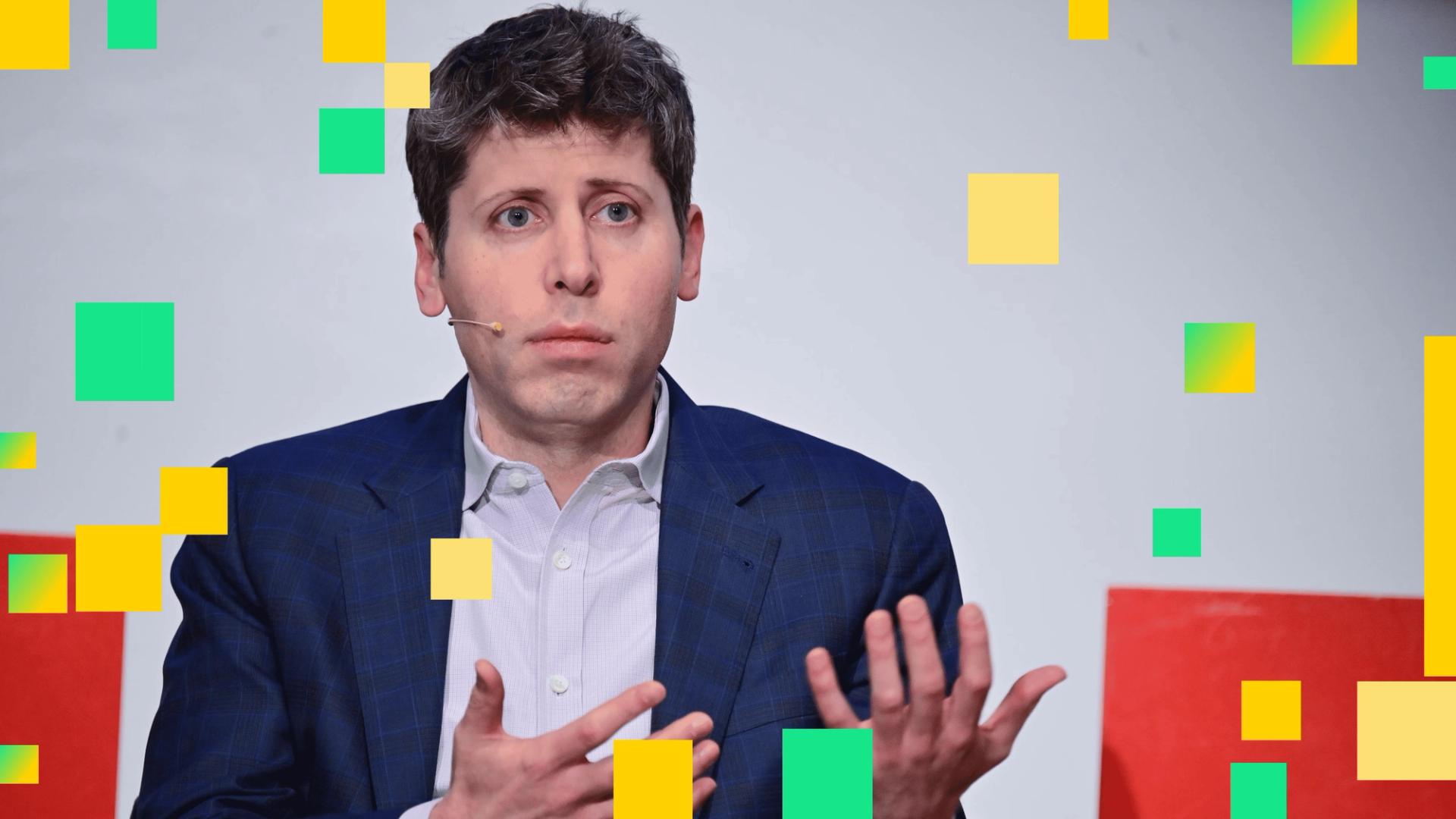
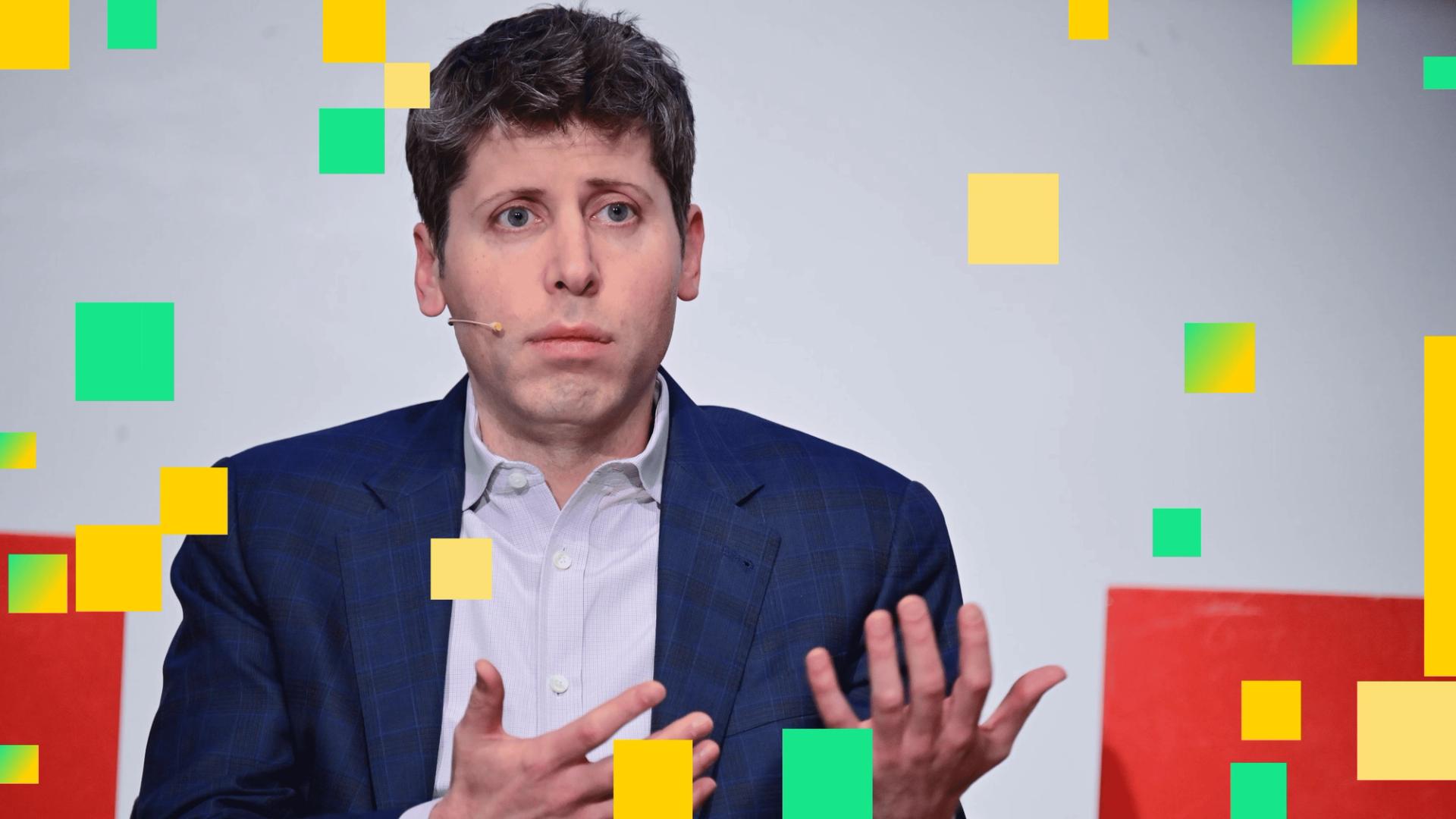
Bitcoin is struggling to regain a foothold above $70,000 as altcoins outperform.
The largest cryptocurrency is little changed over 24 hours, while the broader CoinDesk 20 (CD20) index rose 0.40% even as ether declined. Memecoins are leading gains, with the CoinDesk Memecoin Index (CDMEME) adding 1.5% as PIPPIN climbed 46%.
Tokens linked to artificial intelligence (AI) also fared well. , co-founded by OpenAI CEO Sam Altman, rose more than 3% in the past day, while Virtuals’ VIRTUAL token rose 2.4%. That’s as the “agentic AI,” where AI tools now also execute tasks, narrative grows.
Still, the crypto Fear and Greed Index still points to “extreme fear” in the market after last week’s selloff.
Meanwhile, traditional markets steadied, buoyed in part by Prime Minister Sanae Takaichi’s landslide election victory in Japan. While Japanese bond yields rose after the result, they have since fallen near to pre-election levels. That reduces the risk of trillions of dollars invested overseas moving back to Japan in search of higher yields.
Derivatives Positioning
- Bearish momentum in BTC futures is intensifying as open interest (OI) continues its descent to $15.9 bo;;opm, signaling a deep and prolonged deleveraging phase.
- This shift is most evident in funding rates on Binance (-7%) and Bybit (-8%), which have collapsed into aggressive negative territory. That’s a sign short sellers are paying a heavy premium to maintain their dominance. With the three-month basis stagnant at 3%, institutional appetite remains sidelined.
- The BTC options market is showing a cooling of extreme defensive sentiment. The one-week 25-delta skew is at 16%, while call dominance has rebounded to 56%, indicating a shift toward bottom-fishing.
- The implied volatility (IV) term structure is transitioning from extreme backwardation toward a hybrid position that suggests that while near-term protection remains pricey, long-term volatility expectations are stabilizing.
- Coinglass data shows $290 million in 24-hour liquidations, with a 53-47 split between longs and shorts. BTC ($114 million), ETH ($89 million) and others ($16 million) were the leaders in terms of notional liquidations. Binance’s liquidation heatmap indicates $68,160 as a core liquidation level to monitor, in case of a price drop.
Token Talk
- Merkle Trade, the largest perpetual futures decentralized exchange on the Aptos blockchain, is in the throes of shutting down. The exchange disabled new trading positions on Friday and will forcibly close all open positions today.
- Merkle’s native token, MKL, has added 9% in the past 24 hours. It remains redeemable without withdrawal fees, with a final staking rewards payout scheduled for Feb. 12. The token has lost 77% in the past 12 months.
- The move comes less than two years after Merkle raised $2.1 million in a seed round backed by Aptos Labs, Hashed and Arrington Capital.
- Despite processing $30 billion in trading volume since its 2023 debut, the team gave no clear reason for the closure in a post on X last week, noting only that the decision followed “careful consideration.”
Crypto World
Hyperscale Data doubles down on Bitcoin as treasury hits 589 BTC


Hyperscale Data lifts its Bitcoin treasury to 589 BTC and targets $100m, using a strict dollar‑cost‑averaging plan as crypto remains a macro risk barometer.
Summary
- Hyperscale Data now holds 589.4502 BTC worth about $41.4m, aiming to scale its Bitcoin balance‑sheet position to $100m over time.
- The firm deploys at least 5% of allocated cash weekly into BTC via a disciplined dollar‑cost‑averaging strategy run through Sentinum and Ault Capital Group.
- Bitcoin, Ethereum, and Solana prices underscore the risk‑asset backdrop as external analyses flag elevated BTC volatility and deep drawdowns from 2025 highs.
Hyperscale Data tightens its grip on Bitcoin as treasury tops 589 BTC, sharpening a balance‑sheet bet on digital assets at a time when crypto remains the market’s rawest barometer of risk appetite.
Treasury milestone and $100m target
Hyperscale Data, Inc. said in a press release published today its Bitcoin treasury reached 589.4502 BTC as of February 8, 2026, with an implied value of roughly $41.4m at a closing Bitcoin price of $70,264. The company reiterated that its goal is to accumulate $100m worth of Bitcoin on its balance sheet over time.
Executive chairman Milton “Todd” Ault III framed the move as deliberate and incremental, stressing discipline over bravado. “We continue to demonstrate our dedication to our dollar‑cost average strategy,” he said, arguing that this approach “has allowed us to continually lower our average cost per Bitcoin and further strengthen the balance sheet and long‑term future of the Company.”
How Hyperscale is accumulating BTC
Through its subsidiaries Sentinum, Inc. and Ault Capital Group, Inc. (ACG), Hyperscale now holds 589.4502 BTC, with Sentinum controlling about 548.5903 BTC and ACG approximately 40.8994 BTC. Sentinum’s stack includes 108.3562 BTC mined in‑house and 440.2341 BTC bought in the open market, while ACG added 8.9000 BTC during the week ended February 8.
The firm plans to “fully deploy the cash allocated to its digital asset treasury (‘DAT’) strategy into Bitcoin purchases over time,” typically targeting at least 5% of allocated cash each week via daily buys, though actual deployment will flex with “market conditions and strategic considerations.” Management told investors to judge accumulation using multi‑week averages, consistent with first‑principles DCA practice common among institutional allocators.
Macro backdrop: crypto as risk gauge
This parabolic move comes as digital assets continue to trade as the purest expression of macro risk appetite. Bitcoin (BTC) is hovering around $69,095, with a recent 24‑hour range between roughly $69,319 and $70,123 and turnover anchored in deep, multi‑billion‑dollar spot and derivatives flows. Ethereum (ETH) changes hands near $2,060, down just over 2% on the session, after trading between about $2,000 and $2,150 over the last day. Solana (SOL) trades close to $83.9, slipping around 0.4% in the past 24 hours as volumes consolidate after a sharp multi‑week advance.
For readers tracking the broader context of Bitcoin’s pullback and volatility, recent analyses from outlets such as Phemex on BTC’s drawdown from its October 2025 highs, Journal du Coin’s coverage of the latest 50% correction, and XTB’s breakdown of the latest slide toward the high‑$60,000 region provide additional color on the forces shaping Hyperscale’s high‑conviction treasury strategy.
Crypto World
USD/JPY Drops by More Than 1% At the Start of the Week
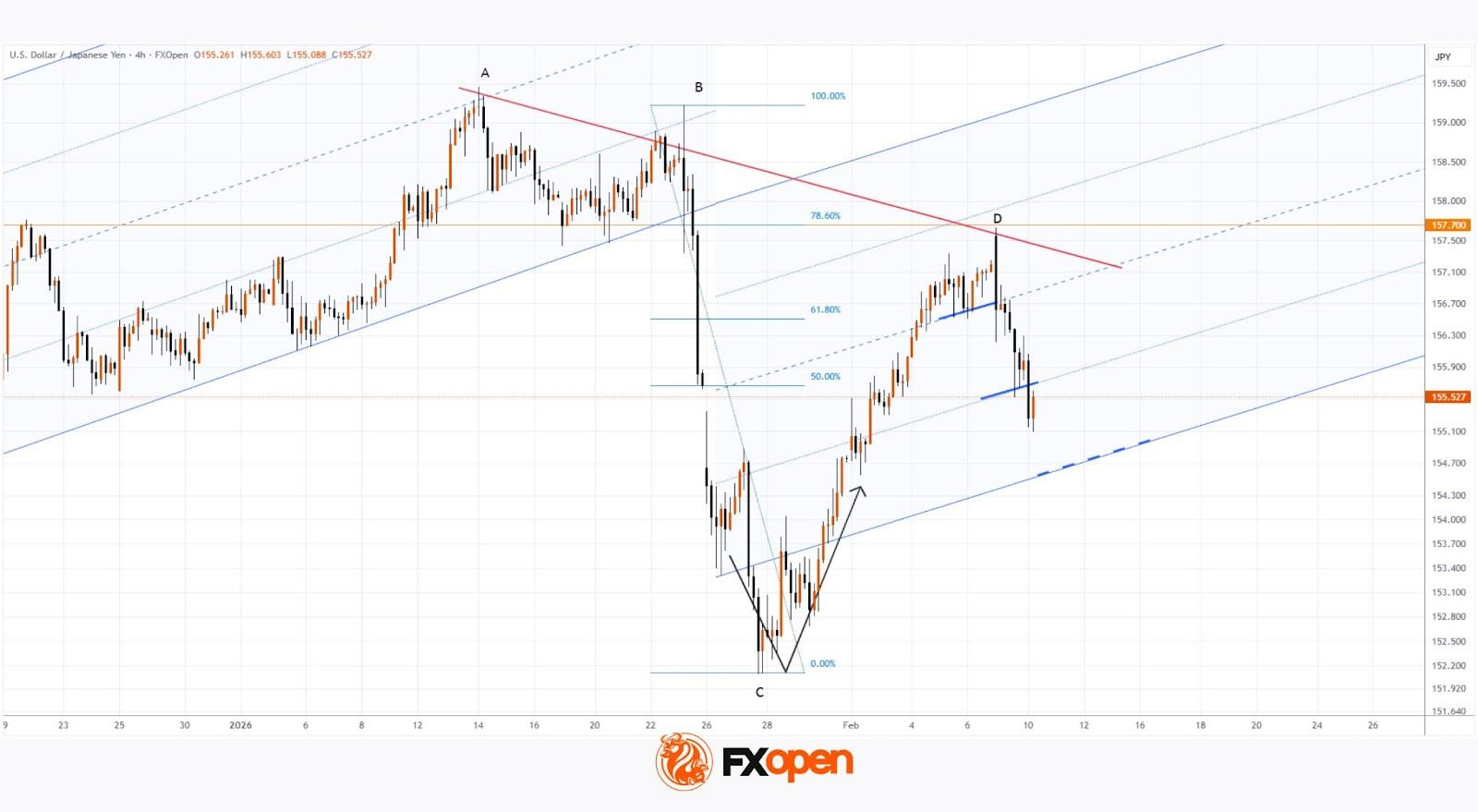
As the USD/JPY chart shows, the pair has been exhibiting bearish momentum since the beginning of the week. This move has been driven by a combination of factors:
→ Yen strength on political news. Prime Minister Sanae Takaichi secured a decisive victory in Sunday’s snap election (8 February), winning a parliamentary majority. Although Takaichi has pledged large-scale fiscal stimulus of around ¥21 trillion, the prospect of increased money printing has not weakened the currency, as the market may (a) welcome political stability and (b) believe that the Bank of Japan will be forced to respond to inflation by raising interest rates.
→ US dollar weakness ahead of economic data releases. This reflects market sentiment ahead of labour market data due on Wednesday and the CPI report scheduled for Friday. In addition, the dollar’s status has come under pressure after Chinese regulators reportedly recommended limiting investments in US Treasuries.

On 26 January, when analysing fluctuations in the dollar–yen exchange rate, we:
→ noted that the long-term ascending channel had been broken near the 157.700 level;
→ constructed a parallel channel below and suggested that, following the sharp drop in USD/JPY (triggered by the possibility of coordinated currency intervention by the Bank of Japan and the Federal Reserve), a rebound could occur.
Indeed, since then (as indicated by the arrow):
→ on 28 January, the market formed a low slightly below the lower boundary of the parallel channel;
→ the pair subsequently rebounded towards the 157.700 level.
Technical Analysis of the USD/JPY Chart
The bearish tone of the current week allows us to highlight the following:
→ local support levels of the parallel channel (shown by thick blue lines) have been broken, and bulls may now have to rely on its lower boundary;
→ lower highs A–B–D have formed on the USD/JPY chart, with a bearish trend line drawn through them.
In this context, it is reasonable to assume that:
→ the sharp B→C impulse has disrupted the market’s multi-month bullish structure;
→ the C→D recovery (towards the 78.6% Fibonacci level) was an interim move within a broader bearish reversal.
The ability of the red A–B–D trend line to remain relevant over time would further support this hypothesis.
Trade over 50 forex markets 24 hours a day with FXOpen. Take advantage of low commissions, deep liquidity, and spreads from 0.0 pips (additional fees may apply). Open your FXOpen account now or learn more about trading forex with FXOpen.
This article represents the opinion of the Companies operating under the FXOpen brand only. It is not to be construed as an offer, solicitation, or recommendation with respect to products and services provided by the Companies operating under the FXOpen brand, nor is it to be considered financial advice.
Crypto World
Chainlink founder says these 3 trends will define crypto’s next era


Chainlink co-founder Sergey Nazarov says the current market cycle is offering a clearer view of where crypto is headed next – not through price action, but through structural changes taking place beneath the surface.
Summary
- Chainlink founder Sergey Nazarov says fewer institutional blowups signal a more resilient crypto market.
- Real-world asset adoption is accelerating regardless of price cycles.
- Infrastructure demand could push RWAs to surpass crypto-native assets over time.
In a post on X, Nazarov argued that the most important signals this cycle are emerging from infrastructure resilience and real-world adoption rather than speculation.
This suggests the industry is entering a more durable phase.
1. Crypto is surviving volatility with fewer systemic failures
Nazarov’s first signal of progress is the absence of large, cascading institutional collapses during recent market drawdowns. He noted that despite sharp volatility, the industry has avoided the kind of failures that defined the previous cycle.
“This cycle so far has not had the same types of cascading institutional blowups,” Nazarov wrote, pointing to improved risk management and capital discipline across crypto firms.
According to Nazarov, this resilience is a critical prerequisite for long-term institutional participation and signals a maturing market structure.
2. Real-world assets are moving on-chain regardless of prices
The second trend shaping crypto’s next era is the steady migration of real-world assets (RWAs) onto blockchains. Nazarov emphasized that tokenization activity is continuing even as broader crypto markets fluctuate.
“The adoption of RWAs is continuing independent of crypto market cycles,” he said, highlighting on-chain issuance and the growth of perpetual markets tied to traditional assets such as commodities.
He added that features like 24/7 trading, transparent collateral, and global access are driving demand beyond speculative use cases.
3. Infrastructure is becoming the core value proposition
Nazarov’s final trend centers on infrastructure. As RWAs scale, he said the need for reliable data, interoperability, and secure coordination between on-chain and off-chain systems is increasing rapidly.
“In the long run, RWAs can become larger than crypto-native assets,” Nazarov wrote, suggesting blockchains are evolving into foundational financial infrastructure rather than niche markets.
Crypto World
Trump Fed Mistake Remark Everyone Is Getting Wrong
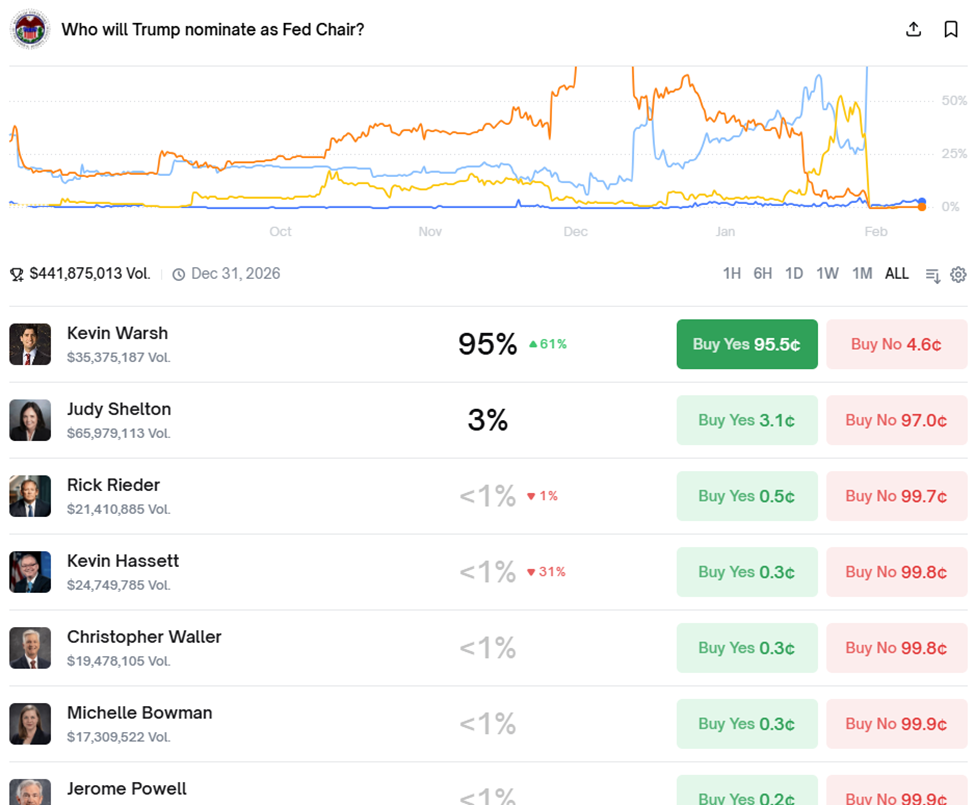
President Donald Trump sparked a viral debate on social media after a February 9 interview on Fox Business’s Kudlow show, where he discussed his decision-making around Kevin Warsh, his nominee for Federal Reserve (Fed) Chair.
Short clips circulating on X (Twitter) show Trump saying he “made a big mistake,” fueling confusion over whether he now regrets nominating Warsh.
Sponsored
Sponsored
Trump Admits a “Big Mistake”—But Is It About Kevin Warsh or Powell?
In full context, Trump was reflecting on 2017, when he chose Jerome Powell over Warsh, who had been the “runner-up” at the time.
Trump said the decision was influenced by advice from then-Treasury Secretary Steven Mnuchin, calling it a “really big mistake.”
Far from expressing current regret, Trump praised Warsh, describing him as a “high-quality person” capable of delivering extraordinary results if confirmed.
Trump’s comments included an eye-catching claim: if Warsh “does the job that he’s capable of,” the US economy could grow as much as 15%. Notably, this projection is far beyond historical peaks of 4–7% growth in strong years.
This bold statement has sparked widespread debate, with speculation that Warsh will be set up as a “fall guy” if such ambitious expectations are not met.
“…drive economic growth to 15%—a highly optimistic claim that highlights the pressure Warsh would face if confirmed…signal Trump’s push for aggressive stimulus ahead of midterm elections and suggest a challenging path for Warsh,” remarked Walter Bloomberg, a popular market commentator.
Sponsored
Sponsored
Meanwhile, the remarks also have clear market implications. Analysts and crypto commentators have interpreted Trump’s enthusiasm for Warsh as a signal that the next Fed leadership could favor lower interest rates, stronger liquidity, and pro-growth policies.
“Trump is directly signaling lower rates and stronger liquidity support…This is the clearest signal yet that the next Fed direction could be more growth-focused and liquidity-friendly,” analyst Bull Theory commented.
With a Fed chair who will cut rates and dismiss concerns about inflation, such growth would normally push prices sharply higher.
Posts on X highlight potential implications for Bitcoin, gold, and other risk assets. The general sentiment is that Warsh’s policy approach could lead to easier monetary conditions, reminiscent of “yield curve control” or coordinated Treasury-Fed operations.
Sponsored
Sponsored
However, misleading captions and out-of-context clips have driven a spike in engagement, with some speculating about alternative nominees like Judy Shelton or questioning whether Warsh could be withdrawn.
However, data on Polymarket shows a modest 3% probability of Trump nominating Shelton, against 95% odds in favor of Warsh.
Fact-check threads and full-clip posts are attempting to clarify that Trump’s “mistake” comment referred to the past, not the present nomination.
Memes, commentary, and speculation about inflation, debt levels, and Fed independence have made the discussion one of the most viral economic topics on X in recent days.
Sponsored
Sponsored
Warsh himself has a history that blends traditional central banking experience with a measured openness to financial innovation.
A former Fed Governor (2006–2011) and Hoover Institution senior fellow, he is known as an inflation hawk who favors fiscal restraint and a smaller Fed balance sheet.
He has personal exposure to crypto, investing in projects such as Basis and Bitwise, though he views Bitcoin primarily as a store of value rather than a transactional medium.
Sentiment suggests his tenure could indirectly support risk assets by providing macro stability and eventual clarity on rate policies. However, any direct crypto rally is unlikely until he assumes office in May 2026 and policy actions materialize.
Crypto World
Bitcoin Price Shows Bottom Signal Not Seen Since 2022
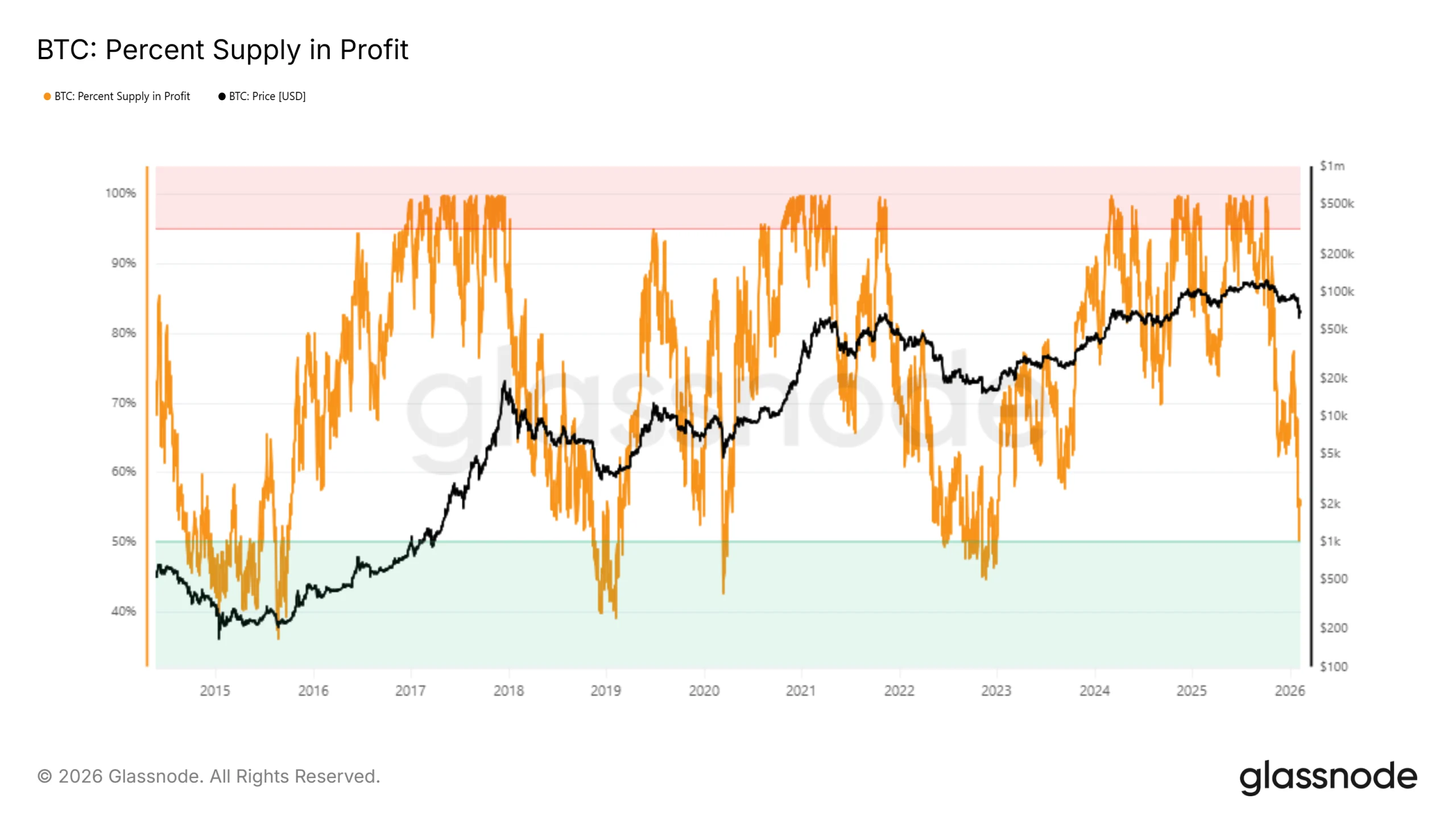
Bitcoin has attempted to recover in recent sessions, but upward momentum has stalled as the market waits for a clearer direction. Price remains range-bound after a sharp correction, frustrating short-term traders.
Despite this pause, historical indicators suggest a bottom may be forming. Past cycles show similar conditions often precede renewed recovery phases.
Sponsored
Sponsored
Bitcoin Profitable Supply Hits 2022 Level
Bitcoin’s recent decline triggered a signal last seen during the 2022 bear market. The percentage of supply in profit fell to around 50%, meaning half of all circulating BTC is now underwater. This threshold has historically coincided with market bottoms rather than prolonged sell-offs.
When profitable supply compresses to these levels, selling incentives weaken. Holders become less willing to realize losses, reducing sell-side pressure. In previous cycles, this dynamic encouraged investors to hold through volatility, allowing the price to stabilize before recovery resumed.
Want more token insights like this? Sign up for Editor Harsh Notariya’s Daily Crypto Newsletter here.
Lower prices also attract fresh capital. Value-oriented buyers tend to enter when downside risk appears limited relative to upside potential. This influx of new demand has historically helped revive Bitcoin recoveries once profitable supply falls to or below the 50% mark.
Why Is Bitcoin Likely To Bounce Back?
Macro indicators reinforce the bottoming narrative. The Pi Cycle Top Indicator, which compares the 111-day moving average to a doubled 350-day moving average, remains far from signaling BTC overheating. This indicator historically flags major tops when the shorter average crosses the higher threshold.
Sponsored
Sponsored
Currently, the opposite setup is unfolding. The shorter moving average is diverging below the longer one, signaling cooling conditions rather than excess speculation. In past cycles, such divergence often preceded sustained rebounds as Bitcoin reset from overheated levels.
This cycle differs from prior ones. Since March 2023, Bitcoin has maintained a macro uptrend without excessive overheating. Gradual price appreciation limited speculative excess, making this the first clear bottom signal in nearly three years rather than a sharp capitulation-driven low.
BTC Price Levels To Watch
In the short term, Bitcoin is holding above the 23.6% Fibonacci retracement near $63,007. At the time of writing, BTC trades around $68,905, maintaining support despite repeated tests. However, price remains capped below the $71,672 resistance, limiting immediate upside.
If on-chain signals continue holding and inflows strengthen, Bitcoin could break above $71,672. Such a move would open the path toward $78,676. Stronger confirmation of recovery would come only if BTC reclaims $85,680 as a sustained support level.
Risks remain on the downside due to the shifting market structure. The short-term holder to long-term holder supply ratio has moved above its upper band. This reflects growing short-term participation, often linked to higher volatility.
This would hurt Bitcoin’s price chances of crossing the $71,672 barrier, continuing its consolidation. Even if BTC does push past said resistance, the selling will pull it back down towards $63,000, invalidating the bullish thesis.
-

 Tech6 days ago
Tech6 days agoWikipedia volunteers spent years cataloging AI tells. Now there’s a plugin to avoid them.
-
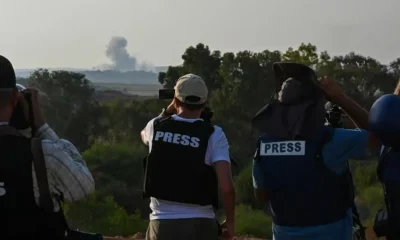
 Politics2 days ago
Politics2 days agoWhy Israel is blocking foreign journalists from entering
-

 NewsBeat16 hours ago
NewsBeat16 hours agoMia Brookes misses out on Winter Olympics medal in snowboard big air
-

 Sports3 days ago
Sports3 days agoJD Vance booed as Team USA enters Winter Olympics opening ceremony
-

 Tech4 days ago
Tech4 days agoFirst multi-coronavirus vaccine enters human testing, built on UW Medicine technology
-

 NewsBeat2 days ago
NewsBeat2 days agoWinter Olympics 2026: Team GB’s Mia Brookes through to snowboard big air final, and curling pair beat Italy
-
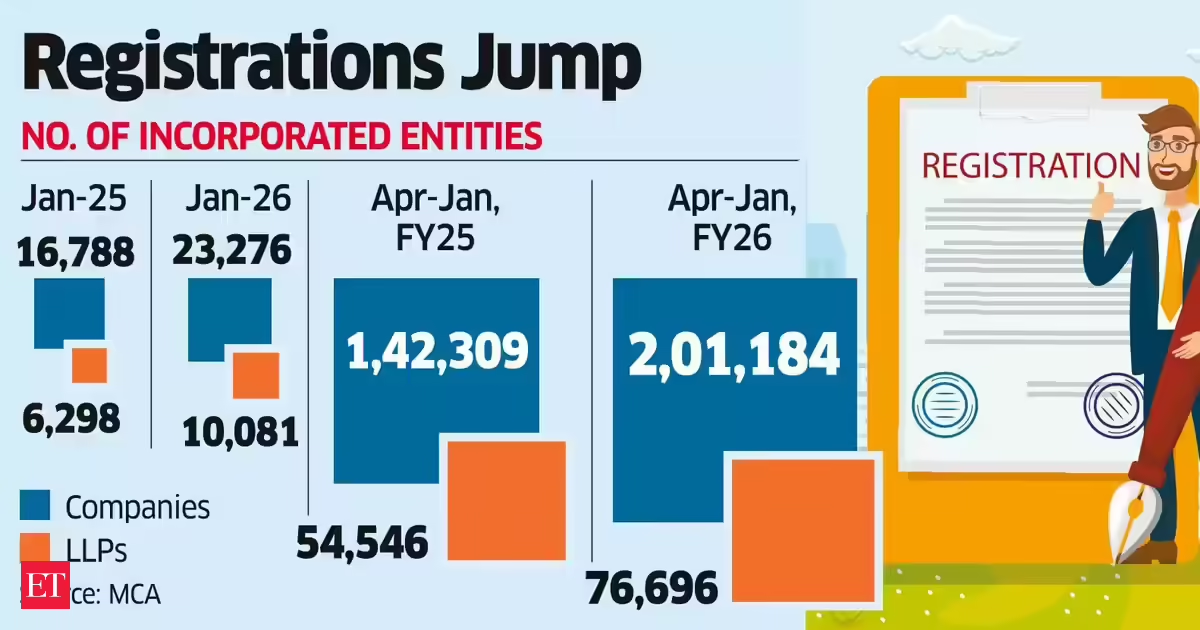
 Business2 days ago
Business2 days agoLLP registrations cross 10,000 mark for first time in Jan
-

 Sports1 day ago
Sports1 day agoBenjamin Karl strips clothes celebrating snowboard gold medal at Olympics
-
Sports3 days ago
Former Viking Enters Hall of Fame
-

 Politics2 days ago
Politics2 days agoThe Health Dangers Of Browning Your Food
-
Sports4 days ago
New and Huge Defender Enter Vikings’ Mock Draft Orbit
-

 Business2 days ago
Business2 days agoJulius Baer CEO calls for Swiss public register of rogue bankers to protect reputation
-

 NewsBeat4 days ago
NewsBeat4 days agoSavannah Guthrie’s mother’s blood was found on porch of home, police confirm as search enters sixth day: Live
-

 Business5 days ago
Business5 days agoQuiz enters administration for third time
-
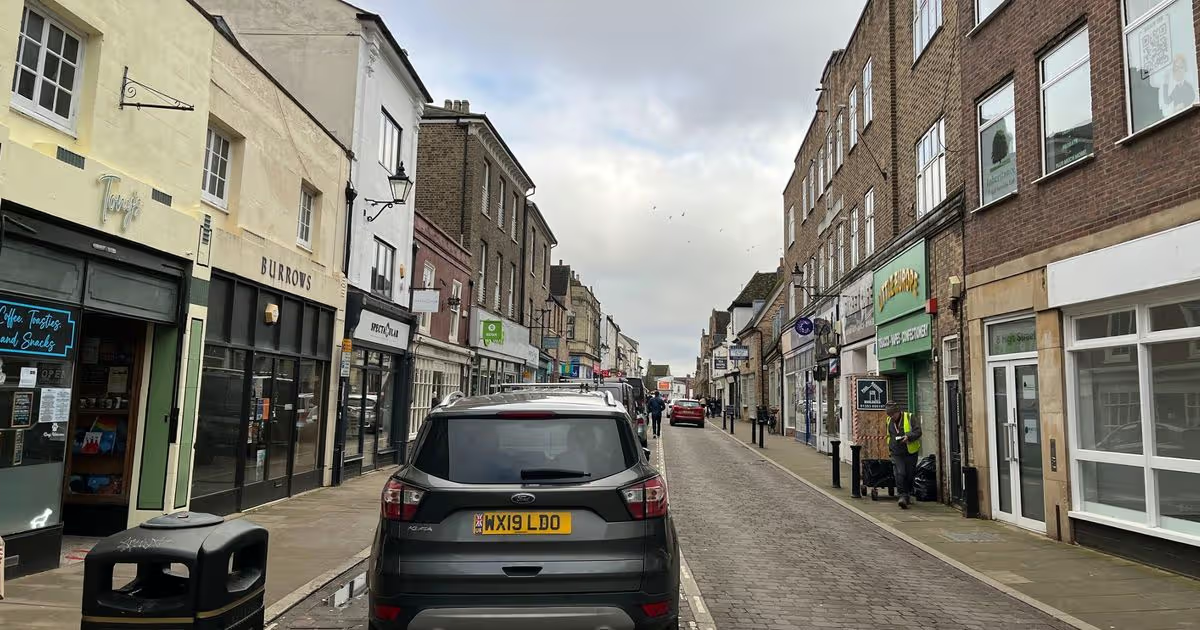
 NewsBeat1 day ago
NewsBeat1 day agoResidents say city high street with ‘boarded up’ shops ‘could be better’
-
Sports15 hours ago
Kirk Cousins Officially Enters the Vikings’ Offseason Puzzle
-

 Crypto World4 hours ago
Crypto World4 hours agoU.S. BTC ETFs register back-to-back inflows for first time in a month
-

 NewsBeat5 days ago
NewsBeat5 days agoStill time to enter Bolton News’ Best Hairdresser 2026 competition
-
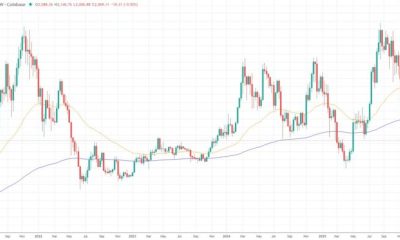
 Crypto World4 hours ago
Crypto World4 hours agoEthereum Enters Capitulation Zone as MVRV Turns Negative: Bottom Near?
-
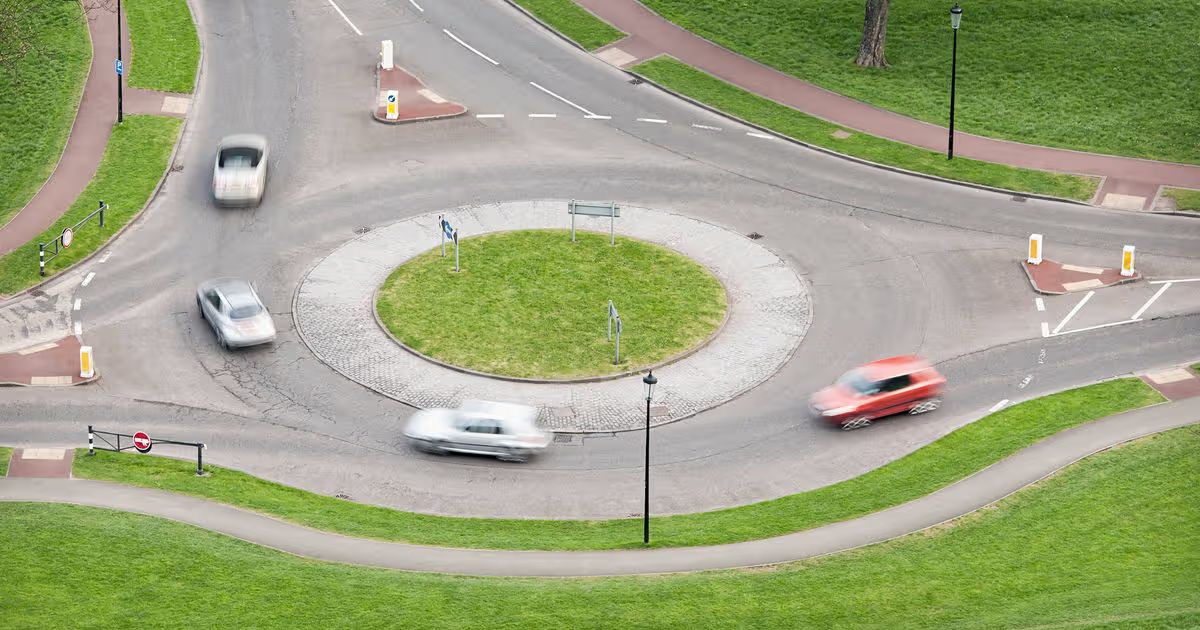
 NewsBeat3 days ago
NewsBeat3 days agoDriving instructor urges all learners to do 1 check before entering roundabout













